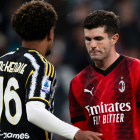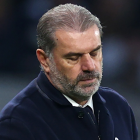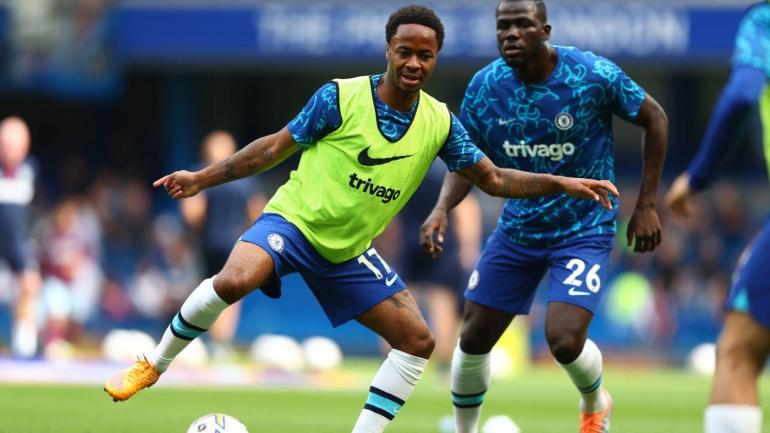
It might have been less than a week since the Champions League began (you can catch all the Champions League action only on Paramount+), but it already feels like we're entering a critical period of the competition. By the end of this week a third of the group stages will already be behind us. Though it is not impossible for a team to overcome back to back losses to start the competition, it certainly makes for a pressured start to the tournament. As such let's cast our eyes over three teams with plenty to prove after matchday one: Juventus, Liverpool and Chelsea.
Juventus vs. Benfica: Allegri slips deeper into the mire
Amid the thrills and furor of their fightback in Campania -- most notably a contentious VAR call that denied Arkaduisz Milik a late winner but not a red card -- it has perhaps gone forgotten that Juventus were 2-0 down to Salernitana. Davide Nicola's side are not a bad team by any stretch of the imagination but this is the sort of team that a hulking giant of Italian football ought to be able to swat aside. In Massimiliano Allegri's first spell in charge, Juve would have got out in front early on before throttling the contest as they saved their legs for more pressing concerns. Instead, they spent the dying minutes throwing the kitchen sink, dishwasher, oven and even a colander at Luigi Sepe's goal.
It barely paid off. Discount the penalty Leonardo Bonucci missed and the rebound he turned into the net and Juventus created shots worth just 1.03 expected goals (xG) in a match they were chasing, one where Salernitana were perfectly willing to let them help themselves to the ball. Allegri's side is one devoid of creativity -- at least partly down to injuries suffered by Paul Pogba, Angel Di Maria and Federico Chiesa -- that asks Dusan Vlahovic to not just score the goals himself but to beat three or four men in the process. If he wouldn't mind laying on the pass to himself as well, that would be grand.
Take this passage of play early on. The industrious but creatively limited Weston McKennie has slipped Vlahovic in behind the Salernitana lines. Behind him are four Juventus players including the US international and Moise Kean, they'd have ground to make up but it is hardly as if the No.9 is entirely on his own when the pass is played.
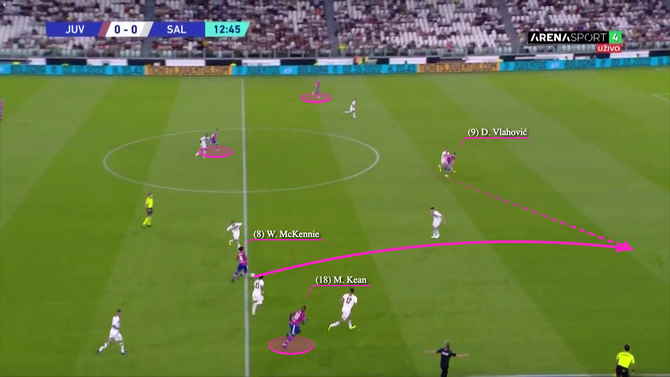
Once Vlahovic takes a step onto his right foot ready to take his shot those potential options have dwindled to just Kean, stood in a position where he might be open for a pass but not one that is conducive to increasing the threat level of the attack. One might argue that Vlahovic goes too soon, that he could hold the ball up for longer, but it was not the only occasion in this game (let alone this season) that one Juventus forward has looked around the penalty area with the bafflement of Vincent Vega in Mia Wallace's apartment.
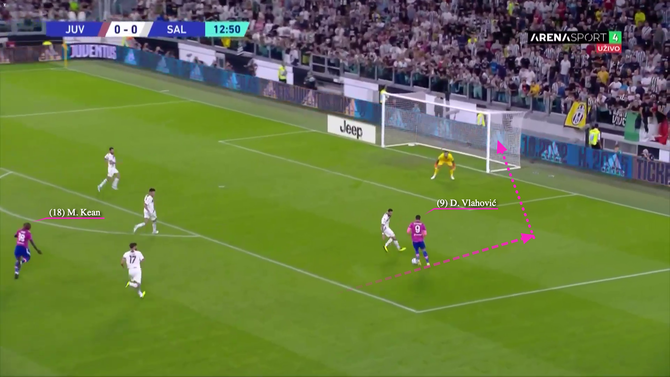
If that keeps happening it is probably not down to lackadaisical players but a manager who recently told Sky Italia "there is a difference between being beautiful and effective: you have to be effective. I don't like being 'pretty' and not winning". Right now Allegri's Juventus are neither. They are the sort of team you watch behind the sofa, whether you're a neutral or a supporter. At one end of the pitch basic errors and a lack of individual talent mean they are not the sort of defensive force that could keep an opponent to six or seven potshots in a game, and at the other they don't create much at all from open play. In Serie A they might have a goal difference of plus five but in terms of xG they are no better in attack than they are in defense. The early season underlying metrics suggest this is a pretty average Italian club. Their performance against Paris Saint-Germain offered much the same indication for most of the game.
And so to Benfica. It is hard to know exactly how much store to place in the Portuguese giants run of 11 wins from 11 to start the new season. Domestically they are yet to face any of their great rivals while their group stage campaign began with a solid win over Maccabi Haifa, seemingly doomed to be Group H's whipping boys. But there is creativity and spark aplenty in Roger Schmidt's side with Rafa, David Neres and Goncalo Ramos all having made bright starts to the season. Against Dynamo Kyiv Benfica showed themselves to be a team capable of dictating terms in a match from start to finish. Juventus haven't proven themselves to be at that level all that often this season. Things could be about to go from bad to worse in Turin.
Liverpool vs. Ajax: Pressing concerns remain
It was no surprise that the spotlight fell harshly on the Liverpool defense in the aftermath of their shellacking in Naples last week. This was a performance riddled with the most basic of errors, one that prompted deep questions over Joe Gomez, Trent Alexander-Arnold and Virgil van Dijk that extended beyond just the 90 minutes in the Stadio Diego Maradona. Those remain important issues for Jurgen Klopp to address -- can Gomez get back to the player he was before injury, is this the best defender Alexander-Arnold can be and is Van Dijk's peak in the rear view mirror? -- but they are far from the only issues.
Indeed as Jamie Carragher identified on Wednesday's Champions League Today show on Paramount+, the issues lie far higher up the pitch. "This is a problem for Liverpool - the high line and that they aren't actually getting pressure on the ball," said the former Reds defender. "The thing for me, right now is that Liverpool play a high-risk game, but they're not pressing the ball to stop that high-risk game and it's causing them the problem.
"It's not a problem with how high the line is, it's about being compact, being together. But when someone gets time on the ball. So often we say, it's too easy to get through Liverpool's midfield. That didn't happen before, so you could play that high line and be really compact. But if that's not happening, you have to adapt."
He added: "It's embarrassing, it really is. I said before, it's kids' stuff and this is the big problem with Liverpool right now. They've built their success on intensity on the ball, which means their opposition can't get their head up to put the ball over. So your team is always tight and always really compact, always a risk, but you've got energy on the ball. That energy is not there now. So that back four has to adapt.
"If they keep playing that [high line] they are going to have a big problem, in terms of the Premier League this season and qualifying for the next round of the Champions League."
Craving even more coverage of the world's game? Listen below and follow ¡Qué Golazo! A Daily CBS Soccer Podcast where we take you beyond the pitch and around the globe for commentary, previews, recaps and more.
Speaking after the 4-1 loss Klopp acknowledged that same issue of a lack of intensity at the start of the press. How could he not? The problems are certainly reflected by the numbers. According to fbref Liverpool are attempting far fewer pressures per 90 minutes this season, from 144 to 117, and succeeding in 43 as opposed to 48. Whilst that naturally means the success rate is higher it is also true that Klopp's side are forcing five fewer turnovers a game through their on ball pressure. Notably as well they are getting to their opponents later, averaging 10 fewer pressures in the final third. In that, as in so many other facets of their play, Liverpool are missing Sadio Mane.
As Roberto Firmino's athleticism dwindled, the Senegal international became the point of the off-ball attack, one that grew to reflect the development in Mane's own game. This was not the blitz of Klopp's early years but a more precise and intricate way of applying pressure. It is perhaps no surprise that Luis Diaz, though he does not lack for industry, is a little too easy to get around otherwise. The same is true in midfield where age and injuries appear to be catching up with Fabinho, Thiago and Jordan Henderson. Increasingly their roles are being taken up by players who, like Diaz, lack the familiarity with the old ways. It is as though the orchestra has lost not just its conductor but its first chair violin, its double bass and a few from the woodwind section. It will take time for others to learn those parts and in the meantime there will be a fair few bum notes.
Here is where Carragher and Klopp diverge. The former would propose dropping that Liverpool line back by five yards, giving opponents less space to attack in behind but equally making it easier for them to build play from the back, robbing the Reds of that quick route to goal that has allowed them to score so many in recent years. Klopp's post match comments appeared to indicate that he instead simply wanted his side to get Plan A right rather than ripping apart a template that has brought so much success to Merseyside in recent years. Of course he also suggested that maybe Liverpool need to "reinvent themselves" but that felt like an idea Klopp was throwing out so as to dismiss, exaggerating for effect.
Carragher and Klopp would probably accept there is no silver bullet for these issues, nothing that will solve them right away. That does not augur well for Ajax's trip to Anfield.
Chelsea vs. Salzburg: Meet the new boss, not dissimilar to the old boss
It was not quite the "palpable discord" that Michael Emenalo described as the end of Jose Mourinho's second tenure at Chelsea but there was still a quite forthright assessment of Thomas Tuchel's management style emerging from Stamford Bridge in the hours after his sacking. Todd Boehly and Clearlake, it appeared, had wanted a head coach who embraced a collegiate approach, who would indulge their interests in the transfer market, keep every player happy in a squad overflowing with seasoned internationals signed for big money and, perhaps most crucially of all, would never leave them on read in the Chelsea hierarchy WhatsApp. Instead they got an increasingly tetchy German who just wanted to spend time on the training field addressing his side's burgeoning deficiencies.
In Graham Potter Boehly believes he has something more like a partner, a coach bound to Chelsea for the long haul, one who will be eager to have a say in how the club works off the pitch as well as how the players perform on it. The owner said of his new manager: "Not only is he extremely talented on the pitch, he has skills and capabilities that extend beyond the pitch which will make Chelsea a more successful club. He has had a major impact at his previous clubs and we look forward to his positive impact at Chelsea."
If it can feel a little perverse to preview Potter's first match in charge by discussing how he will act off the field, it is fair to note that it seems he is more different in that regard than he has been to Tuchel on the pitch. Stylistically, Brighton are not that far from Chelsea, quite something when one reflects on the relative financial muscles of the two clubs. Both covet the ball, but tend to use it as much to protect themselves from counter attacks as they do to pin their opposition back. Let them get into the space outside your flanks and they can be at their most devastating, flying to the byline for cut back goals aplenty. Raheem Sterling will surely feel right at home having wing backs teeing him up for shot after shot.
In most of his 120 Premier League games in charge of Brighton, Potter deployed a back three or five system and last season some of his side's best performances came with Marc Cucurella as the theoretical left-sided center back with license to rampage up the pitch. That could be an intriguing wrinkle that the new manager brings to freshen Chelsea up, but in big picture on field terms it is hard to see where Tuchel's tactical approach ought to be comprehensively changed, at least without another overhaul of the squad. Given a fully fit squad -- and how much easier might Potter's task look if N'Golo Kante could put together a run of 20 league games without injury? -- something like the German's 3-4-3 looks to be the best fit for the head coach and the playing staff.
Events far away from football have given Potter more time on the training field than a midseason managerial appointment might realistically expect to get, but for now it's fair to assume that the new head coach will conclude that the issues under Tuchel over the last few weeks were really ones of execution not of system.















